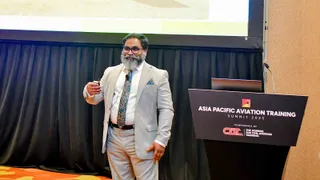Institute for Healthcare Improvement and NPSF to Merge
Contact Our Team
For more information about how Halldale can add value to your marketing and promotional campaigns or to discuss event exhibitor and sponsorship opportunities, contact our team to find out more
The Americas -
holly.foster@halldale.com
Rest of World -
jeremy@halldale.com
The Institute for Healthcare Improvement (IHI) and the National Patient Safety Foundation (NPSF) are uniting to advance common goals and accelerate progress in patient and workforce safety. Saying that patient safety is a public health issue in need of fresh, robust approaches and constant focus for health care systems today, the two organizations will merge on May 1, 2017.
The merger announcement comes during Patient Safety Awareness Week, a highlight of the NPSF United for Patient Safety campaign. Coupled with news of the merger, and with endorsement of IHI, NPSF is releasing Call to Action: Preventable Health Care Harm Is a Public Health Crisis and Patient Safety Requires a Coordinated Public Health Response. This document outlines how a public health framework can bring about widespread advances in patient safety and provides specific recommendations for how it can be used to reduce harm to patients and the workforce. The Call to Action was created by the NPSF Board of Advisors and Board of Directors, made up of more than 40 experts in patient safety, patient advocates, industry representatives, and other key constituents.
“Improving patient safety has always been central to IHI’s mission of improving health and health care quality,” said Derek Feeley, president of IHI. “Yet safety now competes for attention and resources with other important issues such as value-driven care and population health. By joining forces, IHI and NPSF will be more effective in helping leaders and frontline clinicians meet all of today’s challenges while ensuring that patient safety remains a priority along the way.”
Feeley, who will lead the combined organization, says now is the perfect time for the two organizations to join forces to help reset and reenergize the patient safety agenda, building on a mutual history of helping health care systems gain the knowledge and skills to implement harm reduction across the entire continuum of care.
The merger involves significant new investment from IHI in patient safety. The merged patient safety teams, will be led by Tejal K. Gandhi, MD, MPH, CPPS, NPSF President and CEO. They will combine existing NPSF and IHI patient safety programs and reflect an enhanced commitment to achieve patient safety around the world. All NPSF programs, including the NPSF Lucian Leape Institute and the Certified Professional in Patient Safety credentialing program, will continue.
NPSF and IHI each have a history of raising awareness around patient safety issues and educating the health care workforce about best practices,” Gandhi said. “Our programs are distinct but highly compatible, and we share experience, expertise, and a common goal of accelerating patient safety improvement. NPSF has provided critical thought leadership with the aim of establishing safety as a core value in health care, and IHI has demonstrated an ability to influence large-scale, global change. This merger promises to strengthen our ability to advance progress in patient safety in the coming years.
“We believe that in order to make meaningful and sustained improvement in patient safety, we need to address it within a public health framework,” said Gandhi. “The Call to Action outlines a multipronged, ongoing approach to systematically monitor, measure, and improve patient safety across the continuum of care through partnerships and collaboration among policy makers, health care leaders, professional associations, and others.”
The Call to Action sets forth six broad categories of recommendations, ranging from a call to establish a national steering committee and a national action plan for the prevention of health care-associated harm to a call to expand or develop education, training, and resources for the health care workforce.
In the coming year, the newly constituted patient safety work at IHI will include a focus on various components of the Call to Action, as well as helping health systems implement a comprehensive safety framework as described in the recent IHI White Paper, A Framework for Safe, Reliable, and Effective Care.


